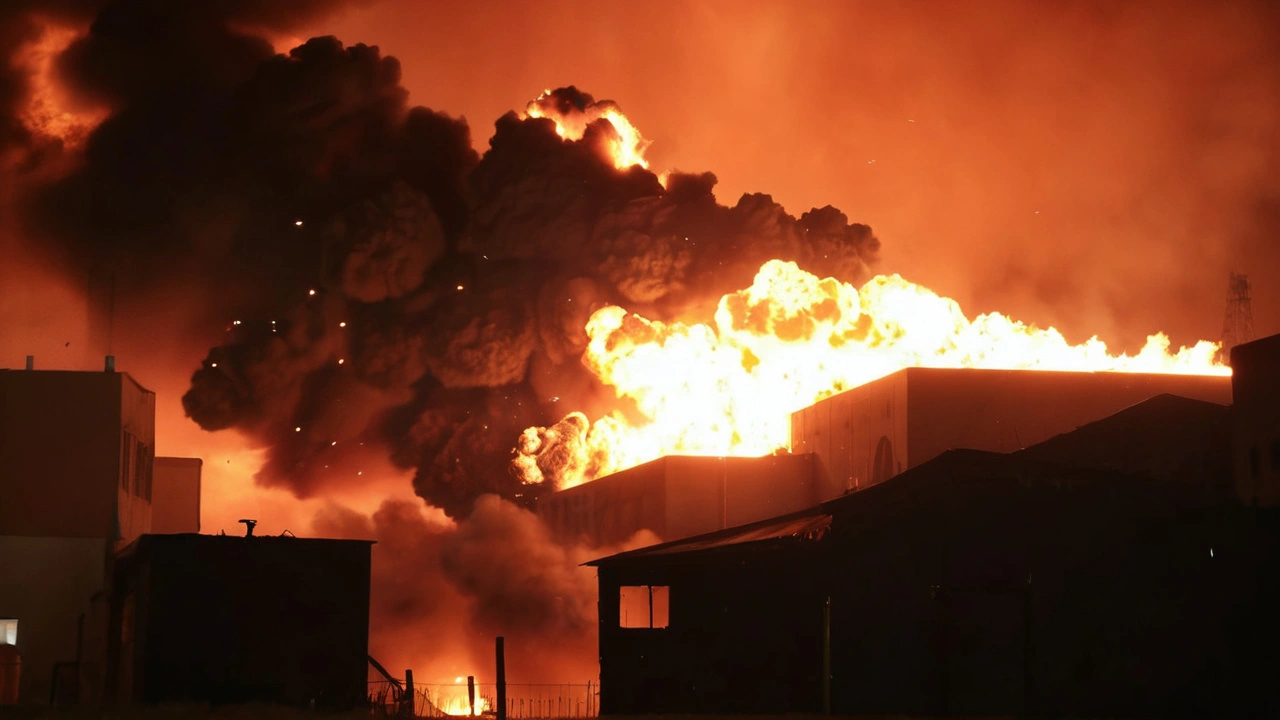Houthi rebels: Who they are, what they do and why it matters
When you hear the name Houthi rebels, you probably picture missiles flying over the Red Sea or headlines about a war in Yemen. But there’s more to the story than just fighting. Understanding who they are and why their moves matter helps you make sense of news that hits African ports, oil prices and even local economies.
The group started in the early 2000s as a Zaidi Shia movement in northern Yemen, led by the Houthi family. They felt ignored by the central government and wanted more political power and a say in how resources were shared. By 2014 they’d taken control of the capital, Sana’a, forcing the internationally recognized government to flee.
Why the Houthi rebels keep showing up in the news
Since the Saudi‑led coalition stepped in, the conflict has turned into a proxy war. The Houthis get backing from Iran, while the coalition leans on the US, UAE and Saudi money. That mix fuels a steady stream of missile strikes, drone attacks and blockades. Their most visible recent actions involve targeting shipping lanes in the Red Sea and Gulf of Aden – routes that move a third of the world’s oil.
Why does that matter to Africa? Ports in Djibouti, Eritrea, Sudan and even Kenya depend on those waters. When a Houthi‑launched missile hits a container ship, insurance rates jump and cargo costs rise. Local businesses feel the pinch, and governments scramble for alternative routes.
What’s driving the Houthis now?
Three things keep the group fighting: political leverage, financial survival, and regional influence. Politically, they want a seat at any peace table and demand the removal of the Saudi‑backed government. Financially, they levy taxes on goods moving through Yemen and sell captured oil on the black market. Regionally, they use anti‑Saudi rhetoric to rally support from Iran and other allies.
Recent months have seen a spike in drone attacks on commercial vessels near the Bab al‑Mandeb Strait. The Houthis claim these strikes target “enemy ships,” but the fallout spills over into African supply chains. Companies that rely on timely deliveries either pay higher freight fees or reroute around the Cape of Good Hope – a longer, costlier journey.
On the ground, the Houthis have also been accused of human rights abuses, including forced recruitment of child soldiers and restricting humanitarian aid. These actions draw condemnation from the UN and NGOs, but they also cement the group’s control over local populations that depend on them for basic services.
So, what should you watch for? Keep an eye on three indicators: 1) Any uptick in Red Sea shipping incidents, 2) Shifts in oil prices that often follow a high‑profile attack, and 3) Diplomatic moves by Saudi Arabia, the US or Iran that could reshape the battlefield.
For African readers, the takeaway is simple: the Houthi rebels aren’t just a Middle Eastern issue. Their missiles, drones and political bargaining power ripple through the Red Sea, affect port fees, and sometimes determine the price you pay for imported goods. Staying updated on their actions helps you understand why a distant conflict can end up on your grocery receipt.
Bottom line: The Houthi rebels are a home‑grown Yemeni movement turned regional firebrand. Their fight over power and money spills over into African waters, shaping trade, security and everyday life. Keep the headlines in mind, but also think about the deeper forces at play – and you’ll have a clearer picture of why this conflict matters to you.
Israeli Airstrikes Hit Houthi Targets in Yemen Following Deadly Drone Attack on Tel Aviv
Israeli jets bombed Houthi-controlled areas in Yemen's Hodeidah port after a drone attack on Tel Aviv. The strikes targeted energy infrastructure, causing significant damage. The Houthis promise retaliation. The event raises fears of a wider regional conflict amid ongoing middle eastern tensions.

